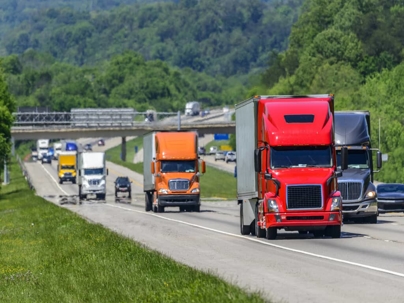The novel coronavirus (COVID-19) has sickened millions of people around the world, leading to the first pandemic in a decade.
Communities far and wide have felt major impacts from COVID-19, including an increased demand for (and a shortened supply of) certain essential equipment such as medical supplies, food, personal protective equipment (PPE), and more.
This increased demand for goods and services has required more truck drivers than ever to be on the road, and at the same time.
Below, our North Carolina personal injury attorneys discuss the potential consequences of this phenomenon.
The Effects of the Coronavirus Pandemic
The most pronounced change from the COVID-19 pandemic is widespread stay at home orders. Cities normally jammed with traffic have seen congestion drop by 50% or more. Sidewalks normally bustling with people going about their everyday business are now mostly populated by people performing essential activities such as grocery shopping or walking their dogs.
There is one group of people, however, who have been impacted by the coronavirus pandemic in a different way—truck drivers. While most other groups of people have been sheltering indoors, truck drivers have been taking to the highways in droves in an effort to deliver essential goods and services to those who need them most.
The federal government has implemented measures to help truck drivers in this task. The Federal Motor Carrier Safety Administration (FMCSA) has suspended hours-of-service regulations that had previously prohibited truck drivers from driving for more than 10 hours without a break. While the suspension of this regulation has allowed more truckers to stay on the road longer, it also brings into question the safety of the roads now that there is no oversight of truck drivers’ activities.
An Increased Demand for Truckers
COVID-19 has hit the country fast and hard. As of the date of writing this article, COVID-19 has killed over 45,000 Americans since February 29.
Given the ferocity with which this virus took over the United States, hospitals across many states were quickly overwhelmed. Many had too many patients and not enough staff or equipment to treat them properly.
While shelter in place orders across the country have helped flatten the curve of COVID-19 infections, many medical facilities are still shockingly low on the equipment they need to do their jobs safely and effectively. Additionally, essential businesses have witnessed an increased demand for food, water, cleaning supplies, and toiletries.
In recent weeks, it’s been up to truck drivers across the country to deliver these essential items to medical facilities and essential businesses. Freight marketplace DAT Solutions has analyzed the effects of this increased demand for truckers and found the following:
The cost to hire a last-minute truck on the open market has jumped 6.1% since February.
The rates for 63 of the nation’s 100 most high volume truck routes have risen.
Load-to-truck ratios sharply increased above 2019 levels in February.
Are Truckers Staying Safe on the Road?
Taking into consideration the increased number of truck drivers on the road (and the heavier loads the trucks are carrying), it’s important to understand whether this increased demand has diminished safety on the roads.
One essential feature of truck drivers’ lives, the truck stop, has been impacted. Similar to restaurants and bars, truck stops across the country have been shut down to prevent the gathering of large groups of people. This, however, may be doing more harm than good.
Truck stops are one of the few places along the highway where truck drivers can pull over and get a good night’s sleep. Without them, truck drivers are forced to find parking lots large enough to accommodate them, which can be difficult to do on a deserted stretch of road.
Some state governments have realized this was a mistake, and have since reopened some truck stops. However, the vast majority of them remain closed. In Pennsylvania, for example, only 13 of the 30 state-operated truck stops remain open.
What Do to After a Truck Accident
The suspension of the FMCSA’s hours-of-service regulations, combined with the closure of dozens of truck stops across the country, has made U.S. highways more dangerous than in recent years.
Although most people are sheltering in place during this pandemic, there will always be those who need to drive on the highway to get to a grocery store, doctor’s appointment, or somewhere similar. Therefore, it’s in your best interest to know how to protect yourself in the event of a truck accident.
Seek medical attention and retain all records of your treatment.
Obtain a copy of the police report from the responding officer.
Gather contact, insurance, vehicle, and company information from the truck driver.
Look around you and see if there are any nearby security or traffic cameras whose footage can be used as supporting evidence.
Contact an experienced personal injury attorney.
At Lanier Law Group, P.A., we know the world doesn’t stop turning, even during a pandemic. If you have been in a car accident and you require legal assistance, our team is here for you every step of the way.
We have multiple office locations throughout North Carolina to better serve you, and we offer our services on a contingency fee basis; there is no cost to you unless we recover compensation on your behalf.
We encourage you to contact Lanier Law Group, P.A. today to schedule a free consultation with our team.

